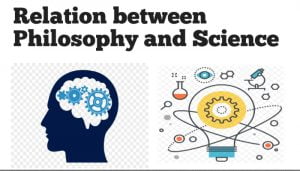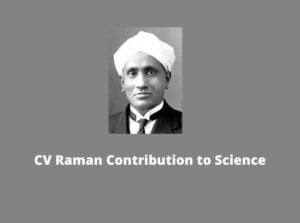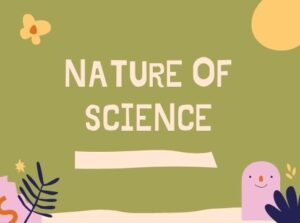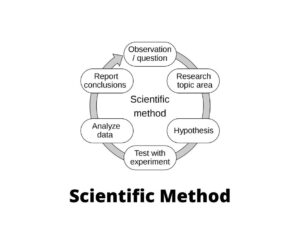Albert Einstein (14 March 1879-18 April 1955) was a German-born theoretical physicist. Albert Einstein’s contribution to science is of paramount importance. Albert Einstein developed the idea of relativity as one of the two pillars of recent physics. Einstein’s The world is known for its influences on the philosophy of science.
Albert Einstein is best known by the overall public for his mass-energy equation formula E=mc² (Which has been dubbed “The World’s most famous equation).
He received the Nobel Prize in 1921 in physics for his discovery of the law of photoelectric effect, a pivotal step in the evolution of quantum physics.
Albert Einstein’s Discoveries, Contribution to Science
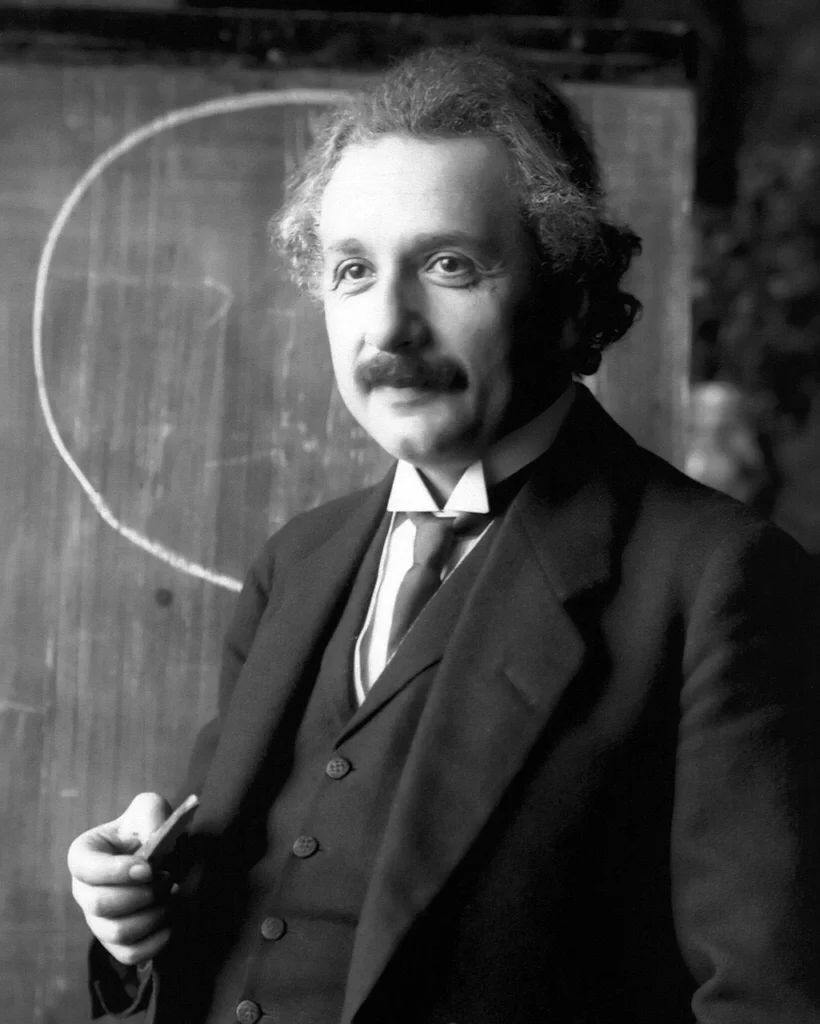
Albert Einstein Discoveries Lists are –
Quantum Theory of Light
Albert Einstein Quantum theory of light proposed that light is composed of small packets of energy called photons that have wave-like properties. In the energy, he also explained the emission of electrons from some metals is struck by lightning-this was called the photoelectric effect. This theory later led to the invention of the tv, and the mobile, which gave technologists a vision to return up with modern-day screen devices (Smartphones, Computers, Laptops).

He demonstrated the link between mass and energy that lead to Nuclear energy today.
Brownian movement
This might far and away be the simplest Einstein discoveries, Where his observation of the Zigzag movement of particles in Suspension, It helps to prove the existence of atom and molecules and we all know how fundamental his discoveries is to almost every branch of science today.
The special theory of Relativity
Albert Einstein theory helped to explain that time and motion are relative to their observation as long as the speed of light remains constant and natural laws are the same throughout the universe.
It’s a theory regarding the relationship between Time and Space. This theory is based on two postulates are
- The laws of physics are the same for all, irrespective of the velocity of the observer.
- The speed of light is always constant, regardless of the motion of the light source or the motion of the observer.
This theory is the only reason to come out Einstein’s most famous equation E=mc²
General Theory of Relativity
Albert Einstein proposed that gravity is a curved field in the space-time continuum created by the existence of mass. Newton’s Law of Universal Gravitation describes gravity as a property of space and time. It is the geometric theory of gravitation.
The General Theory of Relativity is also known as General relativity. The general theory of relativity gives the current description of gravitation in modern physics.
Avogadro’s Number
Avogadro’s number is a concept in Chemistry that defines the number of Units in one mole of a substance as equal to 6.022 × 10²³. The concept of mole can be used to convert between mass and number of particles.
Avogadro’s Number or Avogadro’s Constant is given by a Scientist named Amedeo Avogadro. The molea concept and Avogadro’s number are discussed as sought by Albert Einstein in his PhD thesis of 1905
Wave Particles Duality
Einstein developed a new theory of Electromagnetic Radiation called wave theory particles. He suggested that Electromagnetic radiation can behave as both waves and particles. This theory became known as Wave particles duality of light and is now fully accepted by Modern Scientists.
Bose-Einstein condensate (BEC)
Satyendra Nath Bose and Albert Einstein develop the concept of BEC particles. It states that when a dilute gas of bosons is cooled down very close to absolute zero. Under such conditions, a large fraction of bosons occupy the lowest quantum state, at which point macroscopic quantum phenomena become apparent.
In the future, these BEC concepts can be used in Superconductor or other properties of solid
Manhattan Project
Albert Einstein created the Manhattan Project research supported by the U.S., which lead to the development of the atomic bomb in 1945. However, during the Second World War, this atom bomb was dropped in Japan (Hiroshima and Nagasaki). Einstein was known to be campaigning for a ban on nuclear weaponry.
Albert Einstein Refrigerator
This may be one of the least-known inventions that Einstein is famous for today. Einstein developed a refrigerator design that used ammonia, water and butane and required almost no energy to figure. Considering the energy demands of the planet. Companies may realize the importance of cooling and refrigerators without energy and develop this idea further within the near future.
The sky is Blue
Though this seems to be a simple explanation, Einstein helps put this argument to the rest of the world.
Conclusion
In conclusion, Einstein’s Popular phrase “ The important thing is to not stop questioning” reflected his never-ending questioning attitude and curiosity. This attitude earns him a Nobel prize. He published quite 300 scientific papers alongside over 150 non-scientific works. Einstein’s intellectual achievements and originality have made the word “ Einstein Synonymous with genius”
General FAQ
What did Albert Einstein Contribute to Science?
In addition to the theory of relativity, Albert Einstein also contribute Quantum theory of light, the Brownian Movement, Albert Einstein Refrigerator, E=mc2, Why the sky is blue, He was also involved in the Manhattan project which later develop the nuclear bomb
What is Albert Einstein Scientific Theory?
The special theory of Relativity: Albert Einstein theory helped to explain that time and motion are relative to their observation as long as the speed of light remains constant and natural laws are the same throughout the universe.
What was Einstein IQ?
Albert Einstein IQ has been estimated in between 160-180. This is fall under Genius
